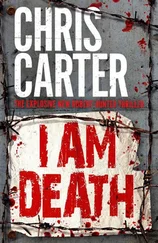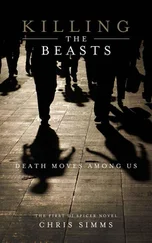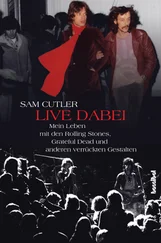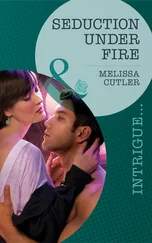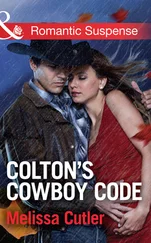
Cassiber in the studio. Frankfurt. Germany
An Introductory Note on Cassiber’s Work Methods
Cassiber’s approach changed as the group evolved. We began with the idea of improvising, not in the highly abstract manner of the time, but towards shaped pieces that would sound composed and arranged. That was the way we approached what eventually became Man or Monkey . There was no group then, just a plan to record — and when I was invited by Heinerto participate, one track, with drummer Peter Prochir, had already been completed [1] I’d made contact with Heiner through Franco Fabbri and Umberto Fiori of Stormy Six , and when I was commissioning work for the Recommended Records Sampler , in 1982, he sent me an orchestrated street riot: Berlin Q-Damm . I wrote to him suggesting that next time, instead of using a drum machine he should use the telephone. CC
. I wrote a provisional text for it ( Our Colourful Culture ) on the evening I arrived and gave it to Christoph the next day — along with a notebook of other texts he might use, if he felt like it, as we worked. Other than that, there was no discussion or preparation or planning — we just improvised, listened back, accepted or rejected what we’d done and then moved on. With one exception: about half way through the week, after a dispiriting afternoon in which everything we’d tried had been rejected, Alfred laid out, over dinner, a set of rules for a structured improvisation — which we played once when we got back into the studio. That was the long track Man or Monkey . Everything else just emerged from the process. Without really trying, by the end of the week, we found we’d evolved a group identity, an aesthetic and just under an hour of music. And since we seemed suddenly to have become a band rather than just a project, we started to cast about for a name. After running with a few contenders — I seem to recall Risiko was popular for a while — we settled on Cassiber , which was a revised spelling of Kassiber, a slang word derived probably from the Hebrew kassaw — that means a secret message or a note smuggled out of prison.
At this point in the project our work was complete, so we all went our separate ways. Then, a few weeks later, before the record came out, we received an invitation to perform at the 18th Deutsche Jazz Festival . Of course we accepted and, since our generative method had been geared solely to studio work, swiftly reconsidered our compositional approach to suit a live performance. In the end, we decided to continue to improvise new pieces but also to play chunks of the record from memory; using the recordings as rough indications, rather than blueprints — I don’t remember there being anything much in the way of rehearsal. After that, more offers of concerts came in, and we continued to follow the same loose pattern of casual invention and recollection.
We approached our second LP much as we had our first, except that by this time we knew each other better, and we knew what ‘Cassiber’ sounded like. Moreover, in the course of our many concerts — though without any discussion — certain themes and materials had organically drifted together to form embryonic compositional…fields. In Einer Minute , for instance, had accreted around Christoph’s frequent use of a fragment from Schoenberg’s 'A Survivor from Warsaw .' At some point Alfred added a phrase from Albert Ayler’s 'Ghosts' and Heiner began introducing snatches of the Brecht/Eisler song 'And I shall Never See Again' , played at first on the piano and then echoed in fragments from a recording Heiner had done with the opera tenor Walter Raffeiner. Running water appeared next, and a hail of broken glass — until all these obliquely related elements quietly coalesced into half-intentional narrative shape. When we arrived at the studio, we sat down and recorded it. Other associations too had been — mostly unconsciously — preformed, so that all in all, Beauty and the Beast was less spontaneous than Man or Monkey — though still collectively shaped in the unfolding of an unprepared performance. However, our goal had changed: on the first LP we had been working toward a collective vocabulary, on the second we were extrapolating from one. And there were other departures: at concerts we had slipped into performing written pieces composed by other people, Nile Rodgers’ At Last I am Free . For instance — which we even recorded for Beauty and the Beast — and Sun Ra’s Enlightment. Last Call was also anomalous. For this, we had prepared a ground — rather than simply improvising — building the track from many layers of overdubs. When it was done, Heiner arranged for the actor Ernst Stoetzner to call the studio with his side of an imagined phone conversation — which we copied straight to the track.

A real Kassiber from 1941, written with pencil on the inside (hidden) of his laundry with thanks to Andreas Maria Jacobs, son of the it’s author
While Alfred was in the group, Cassiber was involved in two large-scale collaborations, both closely bound to improvisation, but otherwise quite methodologically distinct. Cassix was a project brokered by Stormy Six for the Montepulciano Cantiere Intemazionale D'Arte — a contemporary music festival in Tuscany founded by Hans Werner Henze which, until we appeared, had never had any connection with the profane world of rock. Franco describes our work method there in his essay below, so I won’t duplicate it here.
Duck And Cover was different again. The central idea was fragmentation: a thousand explosions — an idea reflective of an untypically overt and overarching theme: the insanity of siting new generations of nuclear warheads in both Eastern and Western Germany. Duck and Cover was made up of all three members of Art Bears (Chris Cutler, Fred Frith, Dagmar Krause), three of Cassiber and two invitees: Tom Cora and George Lewis. Heiner and Alfred prepared a graphic score: explosions, a grand speech and other events interpolated between a loose chain of set-piece songs (written variously by Art Bears, Cassiber and Hans Eisler) all of which were themselves subjected to interruption, fragmentation and dramaturgical distractions. This programme was both more composed and more radically deconstructed than anything we had attempted so far.

Duck and Cover — L: Chris Cutler, George Lewis, Alfred Harth; R: George Lewis
Photos by Michael Schroedter
When Alfred left in 1986, Heiner, Christoph and I adopted a very different approach to composition: more considered and more dramaturgical. I still wrote texts, but now I sent them to Heiner and Christoph early, so that they could sketch settings before we began to record. Nothing was improvised from scratch any more, and some pieces, like Sleep Armed were fully written out so that, by the time we’d finished with it, Perfect Worlds was a more or less coherent set of compositions — thought through, stripped down and augmented with overdubs. At concerts too, the trio no longer improvised new pieces but only performed from the recorded repertoire so that, by the time we were ready to make our fourth (and last) LP, the decks were clear to start from scratch. A Face We All Know was conceived from the beginning as a dramaturgical unity. The initial story and text I wrote over three days in Newfoundland (we were playing at the annual Sound Symposium in St. John’s), after which Christoph and Heiner worked on the settings back in Frankfurt [2] With the exceptions of Gut — a composition by Rene Lussier that Christoph and I had added to as guests of the Frith/Lussier duo at the Victoriaville Festival, and Cassiber had later rearranged and kept in the repertoire — and Start the Show , which Christoph had set alone.
Читать дальше




